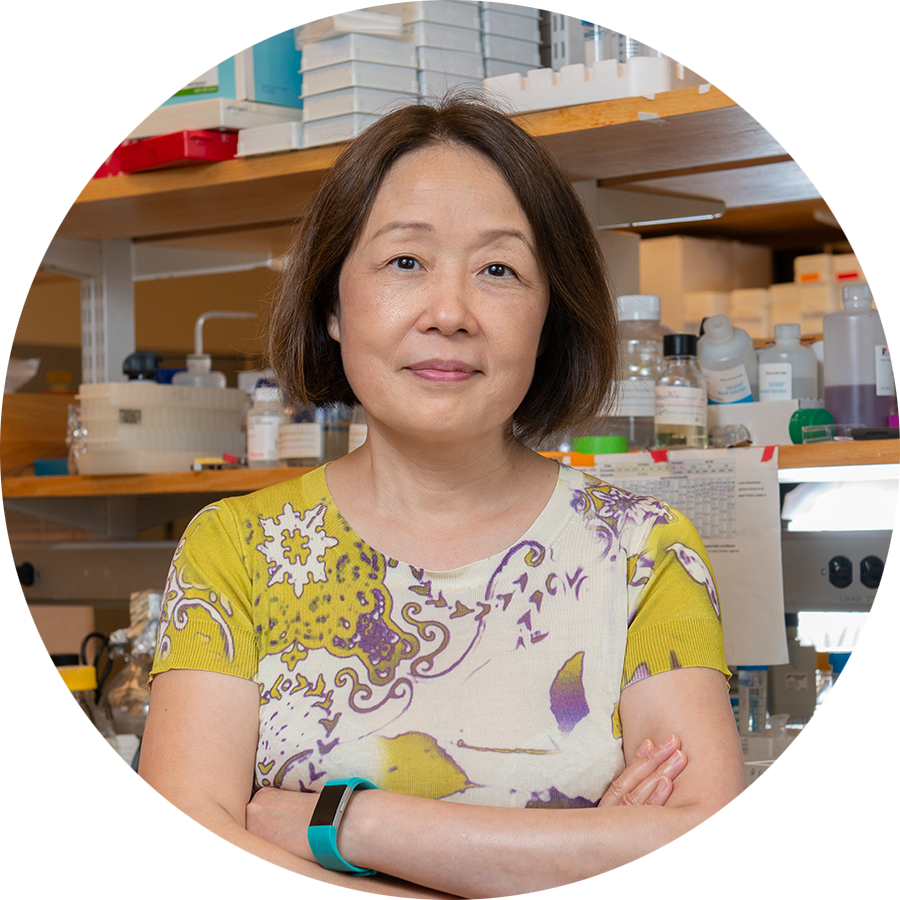SHEN LABORATORY FOR
MOLECULAR NEUROBIOLOGY
Brigham and Women’s Hospital | Harvard Medical School
The Shen Laboratory focuses on elucidating the pathogenic mechanisms of Alzheimer’s and Parkinson’s diseases. We take a multidisciplinary approach to investigate the molecular and cellular mechanisms underlying pathologic degeneration of specific neuronal populations in the adult central nervous system. Through the generation and analysis of a variety of mouse models that carry mutations in the disease genes, we identified a number of early functional impairments that may trigger the pathogenic cascade leading to neurodegeneration. The Shen Laboratory was home to the BWH Morris K. Udall Center of Excellence for Parkinson’s disease from 1998 to 2010, and from 2015 to 2020.

Jie Shen is a Professor of Neurology at Harvard Medical School. She received her Ph.D. in molecular biology from the University of Virginia in 1995 studying the mechanisms of alternative splicing in Drosophila. As a postdoctoral fellow at MIT, she began the investigation of the molecular basis of Alzheimer’s disease using mouse genetic approaches. Since 1998, she has directed a molecular neurobiology laboratory whose major research interests focus on the pathogenesis of Alzheimer’s and Parkinson’s diseases. Her genetic studies have led to the proposal of the Presenilin Hypothesis, which posits that loss of presenilin function underlies neurodegeneration and dementia in the pathogenesis of Alzheimer’s disease. Her genetic analysis of gene products involved in Alzheimer’s and Parkinson’s diseases unexpectedly revealed that presynaptic defects in neurotransmitter release might underlie age-related neurodegeneration in these neurological disorders. Jie was the Director of the Udall Center of Excellence for Parkinson’s Disease at Brigham and Women’s Hospital, which focused on the role of LRRK2 and alpha-synuclein in the pathogenesis of Parkinson’s disease.

